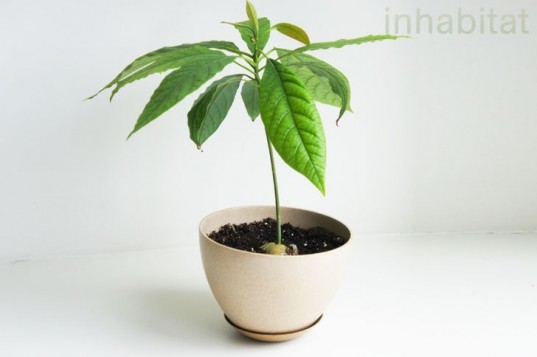If you suffer from the following you are probably sensitive to chemicals.
Do you:
- Find that strong smells from cigarettes, household cleaning chemicals, nail polish and even perfume, lipstick and incense make you feel sick?
- Suffer chronic asthma or skin rashes such as eczema, hives or welts?
- Get an irritated nose and eyes when you’re around unflued gas heaters?
- Feel unwell when exposed to the smell of some strong foods and drink such as tamari or alcohol?
These are classic signs. This may be caused by a combination of the following, which can trigger or increase hypersensitive reactions to smaller amounts of chemicals triggers. Such reactions include:
- Chronic inflammation, which may be due to lifestyle factors like stress, lack of sleep, food sensitivities, environmental toxins, trauma or long period of chronic stress, and adrenal fatigue.
- Over-activity in the limbic system of the brain, which is strongly connected to the olfactory, or smell sensory system.
- Impaired detoxification: This can occur if our liver is overburdened or if you are low in glutathione, an antioxidant which does a great deal of detoxing work in the body.
- An unhealthy gut microbiome: This may be due to taking many courses of antibiotics or due to a diet high in refined carbs and sugar can also increase the level of unbalanced bacteria in our gut.
Testing for Chemical Sensitivity can be done. Talk to us if this is something you would like to pursue. We also suggest that you take the following steps as a first step.
Tips To Reduce Chemical Exposure and Boost your Immune System
Foods and Supplements
1. Buy organic foods: This will ensure you’re not ingesting chemicals when you eat. Organic farmers only pick vegetables when they are ripe, which also means they’ll be higher in nutrients.
2. Serve fresh fish: That’s why I recommend eating fresh wild caught fish, preferably from the fish market.
3. Reduce inflammation: Take a big picture approach – minimize stress, maximize good quality sleep, reduce your intake of alcohol, and eliminate and reintroduce foods like gluten, dairy, corn, soy and eggs to see if you are sensitive to them. You can also eat foods like fish and seeds, which are packed with anti-inflammatory omega-3 fatty acids.
4. Drink dandelion tea: Or enjoy other herbal bitters such as chicory, endive and arugula – they all help stimulate bile production, which in turn boosts liver function.
5. Enjoy cruciferous vegetables: These are high in natural sulfurs, which again support your liver’s detoxification processes.
6. Filter your water: This can reduce the chemical load on your body.
7. Boost gut health: Much of your immune response begins in your gut, so if you have gut issues like bloating or acid reflux, you may be more over reactive when exposed to chemicals.
To improve gut health, take Probiotics, eat fermented foods and use digestive enzymes containing Betaine and Pepsin to help you better digest foods and absorb nutrients. Also minimize use of alcohol and antibiotics, and try supplementing with L-glutamine, which can help heal leaky gut.
8. Support your immune system with supplements: Antioxidants such as Vitamin C, Vitamin E, Glutathione, beta carotene (a vitamin A precursor), and the minerals Selenium and Manganese are potent free radical scavengers, which help protect your body against the impacts of chemical exposure.
9. Support your liver: Supporting your liver’s detoxification process can aid with removing toxins and can often reduce the symptoms of multiple chemical sensitivity. Our P21 Program is designed to accomplished this by providing the nutrients needed to support and balance phase I and II metabolic pathways.
Lifestyle and Environment Changes
1. Clean Your Air: By placing several varieties of indoor plants in different locations around your home and office, you can enjoy the maximum chemical filtering benefits from your indoor plants.
You can also invest in a high-quality air filter. Air filters that remove VOCs and toxins are essential for removing chemicals from the air.
2. Exercise regularly: Movement helps your cells to make more healthy proteins which boost the function of the energy centers or mitochondria in your cells, which can be damaged by exposure. Sweating also helps with detoxification. The skin is your largest organ.
3. Use natural cleaning products: Look for respected eco-conscious brands, or alternatively, make your own natural cleaning solutions using agents such as lemon, eucalyptus oil, baking soda and vinegar.
4. Steer clear of plastic packaging: Where possible, store food in glass, not in plastic, particularly if the food contains acidic ingredients, such as tomato or fatty ingredients which can cause greater leaching of chemicals. Use glass drink bottles and earthenware, or china cups and plates.
5. Open windows to air rooms and leave doors ajar in order to create a cross breeze. Ceiling and portable fans can help increase the airflow so you get better air exchange.
6. Avoid prefabricated furniture: These kinds of cupboards and shelves are usually high in chemicals like formaldehyde. Instead, make your own storage units using natural wood or purchase options from eco-friendly retailers.
I definitely have some detox opportunities as it relates to my office space which is probably why I feel the need to sit outside for about 30 minutes every evening to inhale the fresh air.
If you have questions please do not hesitate to reach out and ask… we are here to help.
Our goal is to also create a genetic trust fund for the next generation and we can’t do it alone. We need your help! Please share and like us on FB follow on Insta etc etc Help us share the Power of Epigenetics with everyone.
Thanks so much and have a great week
Dr Pia











